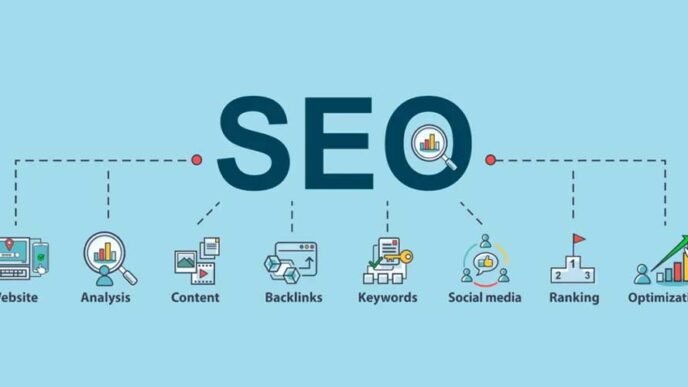Social media marketing leverages platforms to establish genuine connections with consumers. Its objective is to captivate audiences, reinforce brand identity, and promote business growth through customized content and personalized interactions. This strategy empowers businesses to surpass conventional marketing limits and interact directly with their customer base in immediate and meaningful ways.
Benefits of social media marketing
The benefits of SMM are manifold, offering businesses a versatile toolkit to enhance their market presence and customer relationships:
Brand visibility: Social media’s global popularity (60.49% usage) enhances brand visibility by showcasing products to a diverse audience, boosting recognition through viral content, and engaging campaigns.
Audience engagement: Facilitates immediate interaction through content such as videos and polls, strengthening bonds with followers and encouraging support.
Thought leadership: Demonstrates expertise through informative content and collaborations with influencers, bolstering brand credibility and adaptability.
Customer loyalty: Cultivates trust and community through proactive interactions, exclusive offers, and personalized engagement, nurturing enduring loyalty over time.
Lead generation: Utilizes targeted content and CTAs to capture user data and convert leads into customers, supported by analytics for continual improvement.
Brand credibility: Collaborates with genuine influencers to reach new, engaged audiences, mitigating risks through careful campaign management.
Cost-effective advertising: Offers affordable options for businesses to optimize marketing spend with precise audience targeting and measurable ROI.
Enhanced SEO rankings: Boosts visibility and authority through shared content that attracts backlinks, improving search engine rankings indirectly.
Real-time customer feedback: Provides direct channels for customer insights, enhancing service and loyalty by promptly addressing feedback.
Build brand personality: Showcases unique voice and values, forging deeper connections and differentiation in the market.
Expand market reach: Connects globally, facilitating market expansion and cross-cultural engagement for broader audience appeal.
Access insights: Offers robust analytics to refine strategies, measure performance, and optimize engagement effectively.
Best practices in social media marketing
Navigating the dynamic landscape of social media requires a strategic approach. Implementing best practices ensures businesses maximize their impact across platforms:
1. Gather data
Success depends on insightful knowledge. Use social listening tools like Google Alerts to uncover competitors’ strengths and weaknesses, revealing engagement patterns and content strategies.
2. Choose your channels
Once audience preferences and competitor landscapes are clear, select appropriate social channels. Consider demographics and resource availability. Start small, manage two channels initially, and expand based on performance metrics.
3. Measure Your Effectiveness
Evaluate campaign success using native analytics tools from platforms like Facebook, Twitter, and LinkedIn. Consolidate insights with tools for comprehensive performance tracking.
4. Consider paid advertising
Strategically employ paid social media ads to amplify organic content reach. Define objectives and target audience meticulously using tools like Facebook’s Adverts Manager and Lookalike Audiences.
5. Create a content calendar
Develop a content strategy based on audience insights. Use tools for scheduling posts across platforms. A flexible social media content calendar ensures adaptability to unforeseen events.
Create an effective social media strategy
A well-defined social media strategy serves as a roadmap for success, guiding businesses in achieving their marketing goals efficiently:
Establish SMART goals for your content strategy
Launching a strategy begins with setting SMART goals—specific, measurable, achievable, relevant, and time-bound. Clear goals guarantee that your efforts are focused and effective.
Know your audience and ideal posting times
Tailor your content to match your audience’s preferences by understanding their demographics and peak social media activity, enhancing engagement and expanding your reach effectively.
Choose suitable social platforms
Concentrate your efforts on platforms where your target audience is highly engaged. Different platforms cater to diverse business types, so opt for those that provide the greatest value for your particular requirements.
Strategize social content and formats
After selecting platforms, strategize on content types (educational, inspirational, etc.) and formats (videos, user-generated content, etc.) that match your brand values and appeal to your audience.
Develop a content calendar
Create a content calendar to streamline and schedule your posts. This ensures your team is aligned and accountable, promoting timely execution of campaigns and maintaining consistent posting schedules.
Automate content publishing
Utilize scheduling tools to automate and manage content posting across multiple platforms. This saves time and guarantees that posts are published consistently and effectively.
Conclusion
Social media marketing has revolutionized business strategies, offering unique engagement opportunities and essential brand visibility with 4.95 billion global users. Tailored content, personalized engagement, and strategic analytics not only enhance brand presence but also foster loyalty, prompt feedback, and broaden market reach across diverse demographics.
Adhering to best practices—like leveraging data insights, selecting optimal channels, crafting effective content, and measuring performance—is key to maximizing impact and ensuring sustained success. Setting SMART goals, understanding audience behaviors, and using appropriate platforms and content formats enable businesses to harness social media’s potential effectively, adapting strategies to meet evolving market needs.












